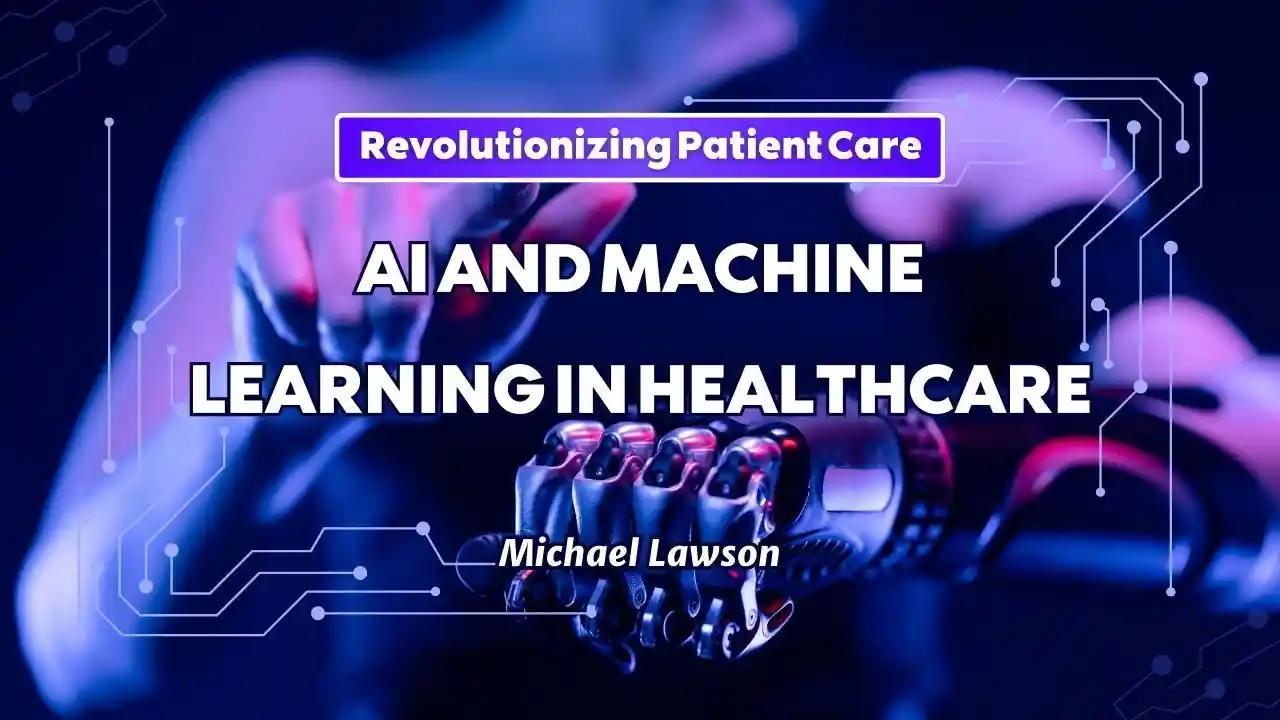Ethics in Cloud Computing: Navigating the Moral Landscape
Jan 07, 2025 - Cloud Computing

In recent years, AI and machine learning in healthcare have emerged as transformative forces, enabling hospitals, clinics, and medical research institutions to revolutionize patient care. From advanced diagnostic tools to personalized treatment plans, AI is setting new standards for accuracy, efficiency, and patient outcomes. But how exactly do these technologies work in healthcare, and what makes them game-changers?
AI has found a powerful application in medical diagnostics, improving the speed and precision of disease identification. For instance, machine learning algorithms can analyze medical imaging data—like X-rays, MRIs, and CT scans—with greater accuracy, reducing the risk of human error. According to studies, AI diagnostics can detect certain cancers at an earlier stage, allowing for prompt treatment that can significantly increase survival rates.
Machine learning models also support predictive analytics, where patient data is analyzed to forecast potential health risks. This proactive approach allows healthcare providers to focus on preventative care, potentially reducing hospitalizations and treatment costs.
Beyond diagnostics, machine learning has significant applications in treatment. Predictive algorithms are now assisting doctors in crafting more personalized treatment plans. For example, AI can analyze a patient’s unique genetic makeup alongside their medical history to predict how they might respond to a particular medication. This approach minimizes trial-and-error in drug prescriptions and helps in administering the correct dosage right from the start.
Machine learning is also key in advancing research on rare diseases. By processing and analyzing massive datasets, AI tools can identify patterns and correlations that might otherwise go unnoticed. This accelerates the development of effective treatments and, in some cases, even uncovers potential cures.
AI and machine learning in healthcare extend into patient monitoring, where they help healthcare providers deliver proactive and continuous care. Wearable devices equipped with AI sensors can monitor vital signs like heart rate, blood pressure, and blood glucose levels. This real-time data can alert both patients and healthcare providers to any irregularities, enabling immediate intervention and reducing emergency visits.
Telemedicine has also been bolstered by AI, especially in rural and remote areas. With AI-powered virtual assistants, patients can conduct routine check-ins, manage chronic conditions, and follow-up on treatments—all from the comfort of their home. This ensures that healthcare is accessible and that critical care reaches those in need, regardless of geographic constraints.
Despite the promise, implementing AI in healthcare is not without challenges. Ethics in AI and machine learning are of paramount concern, especially when it comes to patient data privacy and decision-making transparency. Many patients and providers remain cautious, with concerns around data security and potential biases in AI algorithms. Furthermore, the complexity of healthcare data—often unstructured, fragmented, and inconsistent—adds an additional hurdle.
Another challenge is ensuring that AI-driven insights are interpretable by healthcare professionals. A great deal of research is underway to develop explainable AI, where algorithms are designed to produce transparent and understandable outputs, making it easier for doctors to make informed decisions.
For more on these ethical considerations, see our in-depth article on Ethics in AI and Machine Learning.
The future of AI in healthcare is incredibly promising. As machine learning algorithms continue to evolve, they will unlock even more advanced capabilities, such as predicting patient responses to complex procedures and enhancing robotic surgery precision. Furthermore, AI is expected to drive breakthroughs in fields like mental health, where machine learning models may assist in early diagnosis and personalized treatment strategies.
AI and machine learning in healthcare are also positioned to address global health challenges. For instance, they can support epidemic prediction models, allowing governments and health organizations to allocate resources more effectively and reduce outbreak impact.
For insights into the future trends and predictions in AI, refer to our article on The Future of AI: Trends and Predictions.
As AI continues to weave its way into healthcare, its potential for enhancing patient outcomes becomes increasingly clear. From diagnostics and personalized treatments to remote patient monitoring and epidemic predictions, AI and machine learning are reshaping how care is delivered. While challenges remain, including ethical and data-related concerns, ongoing research and innovation promise a future where AI-driven healthcare is both advanced and accessible, enabling improved patient outcomes across the globe.
Copyright © 2026 ByteTechBlog By infyable.com. All Right Reserved.